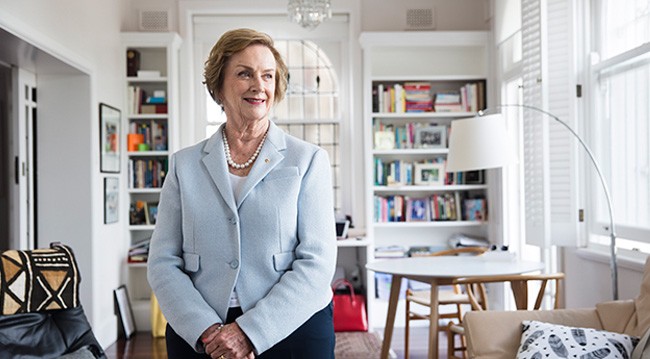Trailblazer Wendy McCarthy AO FAICDLife views governance as a two-way relationship that balances opportunity and accountability.
When I started out, I thought governance was a gentleman’s job. In the mid-1970s and early ’80s that changed, with women starting to sit on statutory and NFP boards. But it wasn’t until issues of diversity came up (more recently) that women started to join company boards. AICD has improved the standards of governance in Australia and has been very successful in recognising that governance isn’t just about business and public companies, but also has to be thought about on statutory boards and in private and family companies.
Breaking through
The role of the truly independent director is gaining recognition and that’s the reason I’ve been on such a wide range of boards — 34 at last count. I’ve crossed a huge number of subject areas as a non-executive director (NED), because people accept and respect the fact that I’m genuinely independent. I’ve been a token woman — and I acknowledge that’s why I was appointed in some cases — but it’s also been my chance to prepare the way for the arrival of more people like me. Someone has to break through.
Two sides of the table
Some boards don’t understand what culture is or the most significant rules of engagement. I was on a board with specialist lawyers and accountants who had lost sight of the fact that you shouldn’t open the door unless you are solvent — I had to point it out to them.
One of the first boards I was on, Family Planning, was placed into administration — it had limited liability. It wasn’t a great beginning to a life of governance, but it did give me a profound understanding of the stakes in these publicly exposed positions.
During my working life, there has barely been a time when I haven’t been an NED and an executive or executive director. Sometimes I sit there as a CEO or executive and think, “I would not want to be asked that inappropriate question by a director.” Then I sit on the other side of the table and think, “I wouldn’t cop that, so I’m not going to ask the CEO to do something I wouldn’t do.” I apply my standards on both sides of the fence and that’s a powerful position.
In situations where the directors want to manage everything — which is not uncommon — it’s a very amateur way of being an NED. You need to enable, encourage, guide and hold management accountable for the affairs of the company. If you approach it in that way, then management rises to the occasion and doesn’t squirrel away information and fail to tell the board everything that it needs.
Not-for-profits
I’m a specialist generalist — there are areas I have detailed knowledge about — but I’m confident that I also bring curiosity. I’m fearless when asking questions and I know there are governance issues that enable all of us to be better directors. Bit by bit, by ensuring that happens in board meetings, people understand these things are important.
When really good commercial directors come with an open mind to the NFP sector, they can help transform these organisations — but they have to remember that they’re among equals. I love being on an arts or NFP board. An NFP role can help you learn much more about the roles and responsibilities of management and non-executive governance, which you wouldn’t have otherwise.
There are no dollars to waste in NFPs and it’s much harder to get funds in the public sector. At the Australian Bicentennial Authority, we had a great chair who held us to account in the most extraordinary way and that was a good learning for me. When I was deputy chair of the ABC, we didn’t waste money, because we didn’t have it!
Board behaviour
Until recently, I would have said all boards need a chartered accountant and a lawyer. Many of the companies I connect with now have the financial expertise, but what we need is people who ask management the questions to get results.
There is better governance today, because there’s greater awareness of the significance of good governance and how it protects shareholders, stakeholders and the economy. The best boards have trust between directors and management, respectful discourse and can manage conflict and encourage debate without getting personal.

Tips for board-meeting preparation
When I get the board papers, I prepare by flicking through them and highlighting the things that interest me or I don’t understand. Then, before the meeting, I’ll go through them rigorously to work out what I want to know. Sometimes I sit with management to ask them why they expressed the information in that way — I did that recently and it was very helpful. Managers love to know their board directors, but some CEOs find it very threatening and you have to find a way to work around that.
I’m also a great believer in the board dinner the night before: a lot gets done and we talk about issues in camera. A shared vision between management and the board produces the results we would like to have.
Latest news
Already a member?
Login to view this content

